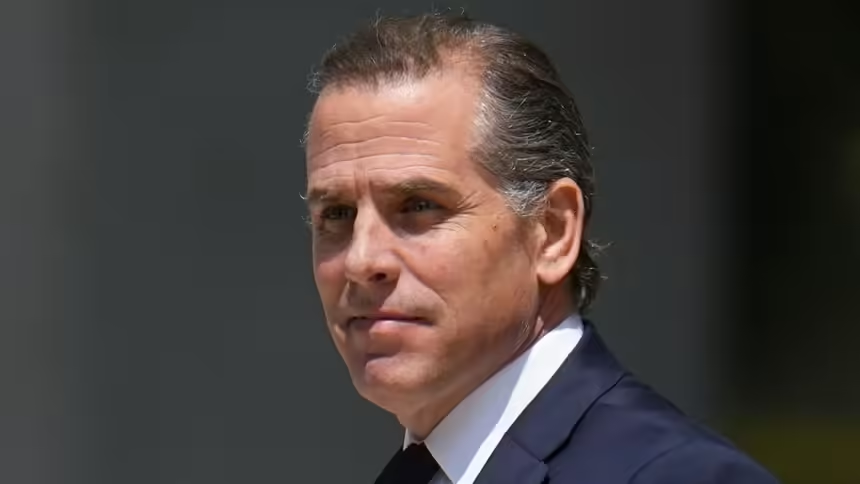President Joe Biden announced on Sunday that he had granted a presidential pardon to his son, Hunter Biden, as reported by Reuters.
This announcement, made through a statement released by the White House, marks an extraordinary moment in American presidential history, intertwining personal and political dynamics in a case that has undergone intense national scrutiny. “Today, I signed a pardon for my son Hunter,” Biden stated. “From the day I took office, I vowed not to interfere with decisions made by the Department of Justice, and I kept that promise, even as I witnessed my son being prosecuted selectively and unfairly. I hope the American people will understand why both a father and a president made this decision.”
Hunter Biden has been at the center of legal and political battles, facing allegations ranging from tax violations to charges related to firearms.
Critics have accused the Department of Justice of either favoring or targeting him due to his family connections, while his defenders argue that he has been unfairly weaponized as a political tool against his father. This pardon ensures that Hunter Biden will no longer face federal charges related to these accusations, although the broader political implications remain uncertain.
The decision to pardon Hunter Biden is unprecedented in modern American politics.
While presidential pardons are not uncommon, they typically do not involve individuals directly related to the president. Critics across the political spectrum have raised concerns about the ethical and political ramifications of this decision.
Republicans, who have been investigating Hunter Biden’s business dealings and allegations of influence-peddling, are likely to intensify their criticism, characterizing the pardon as an abuse of presidential power. They argue that this move undermines the principle of equality before the law and exacerbates perceptions of nepotism.
Supporters of the president, however, emphasize the deeply personal nature of the decision. They contend that the pardon reflects Biden’s role as a father rather than his position as president, asserting that Hunter has been subjected to excessive scrutiny and selective prosecution driven by partisan politics.
The pardon is expected to dominate political discourse in the coming weeks, with significant implications for Joe Biden’s re-election campaign. While some voters may view the decision as an act of compassion and principle, others may perceive it as a liability, questioning the president’s judgment and his prioritization of family loyalty over public perception.
Moreover, this decision comes at a time when trust in government institutions remains fragile. The president’s assertion that he did not interfere with the Department of Justice prior to issuing the pardon is likely to face close scrutiny, particularly from those already concerned about the independence of federal agencies.
This move reignites debates about the scope and limits of presidential pardon power. Historically, controversial pardons—such as Gerald Ford’s pardon of Richard Nixon or Bill Clinton’s pardon of financier Marc Rich—have provoked significant backlash.
During his first term, President Donald Trump also issued pardons to several close advisors and allies convicted of criminal acts.
Biden’s decision to pardon a close family member adds a new layer of complexity to this ongoing debate.
In the coming days, the nation will closely observe the reactions of political leaders, legal experts, and the public to this historic moment. While the legal consequences for Hunter Biden have been nullified, the political and ethical repercussions of this decision are just beginning to unfold.
The pardon granted by President Biden to his son Hunter is both a deeply personal act and a politically sensitive decision. It underscores the tensions between family loyalty and public responsibility, raising profound questions about the role of presidential power in the American legal and political landscape.







